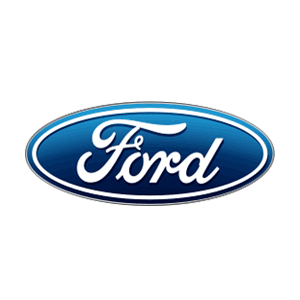Job Description
Job Description & Qualifications
At Ford Motor Company, we believe freedom of movement drives human progress. We also believe in providing you with the freedom to define and realize your dreams! With our incredible plans for the future of mobility, we have a wide variety of opportunities for you to accelerate your career potential as you help us define tomorrow’s transportation!
A Research Engineer position in the Cell Technology Research (CTR) team within the Research & Advanced Engineering division of Ford Motor Company. Battery technology is recognized as the linchpin in Ford’s pivotal initiative to Lead the Electrification Revolution. Ford Research & Advanced Engineering is responsible for the delivery of innovative advanced battery cell technology to meet this objective.
This position is passionate about developing and conducting battery research activity internal to Ford, management or support of battery research activity external to Ford and in supporting the application of battery technology in Ford electrified vehicles.
What you'll be able to do:
Develop, support, and/or conduct focused battery research activity internal to Ford
Lead, manage, and/or support external consortium and university partner energy storage research projects
Identify and develop battery cell or pack level requirements for vehicle applications
Conduct battery performance and life cycle characterizations
Collaborate with battery/battery component suppliers and support internal platform or subsystem customers
Monitor, analyze, and report on global battery developments and developer trends
Lead or support battery electrification-related IP development
Minimum requirements we seek:
Bachelors Degree in Engineering (Chemical, Mechanical or Electrical), Mathematics, Materials Science, Applied Physics, Chemistry, Electrochemistry
3+years of experience in development of advanced battery cell technologies
1+ years o experience in the following battery categories: solid state electrolytes, advanced cathodes/anodes, fast charge, safety, thermal behavior, pack integration, recycling
Our preferred qualifications:
Masters (MS) or Doctorate (PhD) Degree in Engineering (Chemical, Mechanical, Electrical or Equivalent), Materials Science, Applied Physics, Chemistry, Electrochemistry or Equivalent related to Energy Storage
10+ Years of Experience in development of advanced battery cell technologies
Previous experience working in a major high-volume battery cell supplier and/or automotive OEM or Tier I supplier in a research, production, or development role involving energy storage
Advanced knowledge of battery cell-level performance and life cycle characterization methods and associated dedicated test equipment
Advanced knowledge of one or more of the following battery categories: solid state electrolytes, advanced cathodes/anodes, fast charge, safety, thermal behavior, pack integration, recycling
Collaborative approach and ability to demonstrate Ford Plus behaviors
Fluency in Japanese, Korean or Chinese language
Excellent communication skills in English (both written and spoken)
Ford Motor
Dearborn, MI
Ford Motor Company is an American multinational automaker that has its main headquarter in Dearborn, Michigan, a suburb of Detroit. It was founded by Henry Ford and incorporated on June 16, 1903. The company sells automobiles and commercial vehicles under the Ford brand and most luxury cars under the Lincoln brand. Ford also owns Brazilian SUV manufacturer Troller, an 8% stake in Aston Martin of the United Kingdom and a 32% stake in Jiangling Motors.It also has joint-ventures in China (Changan Ford), Taiwan (Ford Lio Ho), Thailand (AutoAlliance Thailand), Turkey (Ford Otosan), and Russia (Ford Sollers). The company is listed on the New York Stock Exchange and is controlled by the Ford family; they have minority ownership but the majority of the voting power.
Ford introduced methods for large-scale manufacturing of cars and large-scale management of an industrial workforce using elaborately engineered manufacturing sequences typified by moving assembly lines; by 1914, these methods were known around the world as Fordism. Ford's former UK subsidiaries Jaguar and Land Rover, acquired in 1989 and 2000 respectively, were sold to Tata Motors in March 2008. Ford owned the Swedish automaker Volvo from 1999 to 2010. In 2011, Ford discontinued the Mercury brand, under which it had marketed entry-level luxury cars in the United States, Canada, Mexico, and the Middle East since 1938.
Ford is the second-largest U.S.-based automaker (behind General Motors) and the fifth-largest in the world (behind Toyota, VW, Hyundai-Kia and General Motors) based on 2015 vehicle production. At the end of 2010, Ford was the fifth largest automaker in Europe. The company went public in 1956 but the Ford family, through special Class B shares, still retain 40 percent voting rights. During the financial crisis at the beginning of the 21st century, it was close to bankruptcy, but it has since returned to profitability. Ford was the eleventh-ranked overall American-based company in the 2018 Fortune 500 list, based on global revenues in 2017 of $156.7 billion. In 2008, Ford produced 5.532 million automobiles and employed about 213,000 employees at around 90 plants and facilities worldwide.
-
IndustryAutomotive
-
No. of Employees199000
-
Website
-
Jobs Posted669


